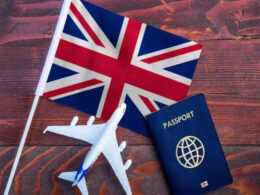The case is scheduled for hearing on March 3, 2025, with hearing notices set to be served to all parties. The court’s ruling is expected to clarify whether VAT on food sold in restaurants and hotels is enforceable and whether the EFCC has the authority to probe VAT compliance matters.
Ilorin, Nigeria – A Senior Advocate of Nigeria, Chief R.O. Balogun, SAN, has filed a lawsuit at the Federal High Court in Ilorin, seeking to nullify a provision in the 2020 Value Added Tax (VAT) Modification Order that mandates VAT collection on food sold in restaurants and hotels.
The legal challenge, which targets the VAT order approved by former Minister of Finance, Zainab Shamsuna Ahmed, argues that the provision contradicts the VAT exemption on basic food items outlined in the First Schedule of the VAT Act.
Legal Challenge Against VAT on Restaurant Food
Balogun is contesting Order 33 of the VAT Modification Order 2020, which states that food items sold in restaurants, hotels, eateries, lounges, and similar establishments are subject to VAT. He argues that this provision violates the VAT exemption granted to basic food items and should be nullified.
The suit also includes the Economic and Financial Crimes Commission (EFCC) and the Attorney General of the Federation as defendants. The lawyer insists that VAT collection on food sold in these establishments is unconstitutional and not supported by the VAT Act.
EFCC’s Alleged Overreach in VAT Investigation
Balogun is also accusing the EFCC of overstepping its jurisdiction by investigating VAT compliance instead of allowing the Federal Inland Revenue Service (FIRS) to handle such matters.
His client, Ibigbemi Oloruntobi, owner of Item 7 Go, a business enterprise, is currently under EFCC investigation for alleged non-compliance with VAT collection. The senior lawyer claims that the EFCC’s demand for VAT remittance details, including banking records and BVN information, is unjustified and amounts to harassment.
“Failure to collect VAT has not been criminalized under Nigerian law. What has been criminalized is tax evasion, not non-collection of VAT,” Balogun stated.
FIRS, Not EFCC, Responsible for VAT Compliance
Balogun emphasized that the FIRS is the proper authority to investigate VAT compliance and should pursue any uncollected VAT through civil proceedings, not through EFCC intervention.
“At best, if VAT was not collected, the FIRS should take civil action before the appropriate court or tax tribunal. The EFCC has no legal basis to probe VAT compliance,” he added.
He further requested a court declaration stating that the EFCC’s invitations, investigations, and alleged harassment of his client and staff constitute an abuse of office.
EFCC’s Money Laundering Probe
Documents reviewed by REPORT AFRIQUE indicate that the EFCC’s Special Control Unit Against Money Laundering (SCUML) is also investigating Item 7 Go for alleged violations of the Money Laundering (Prevention and Prohibition) Act. The probe reportedly involves scrutinizing financial transactions and banking records of the business.
SCUML, responsible for monitoring compliance with anti-money laundering laws, collects reports from companies and forwards them to the Nigeria Financial Intelligence Unit (NFIU) to detect potential financial crimes.
Case Set for Hearing
The case is scheduled for hearing on March 3, 2025, with hearing notices set to be served to all parties. The court’s ruling is expected to clarify whether VAT on food sold in restaurants and hotels is enforceable and whether the EFCC has the authority to probe VAT compliance matters.










Join our Channel...